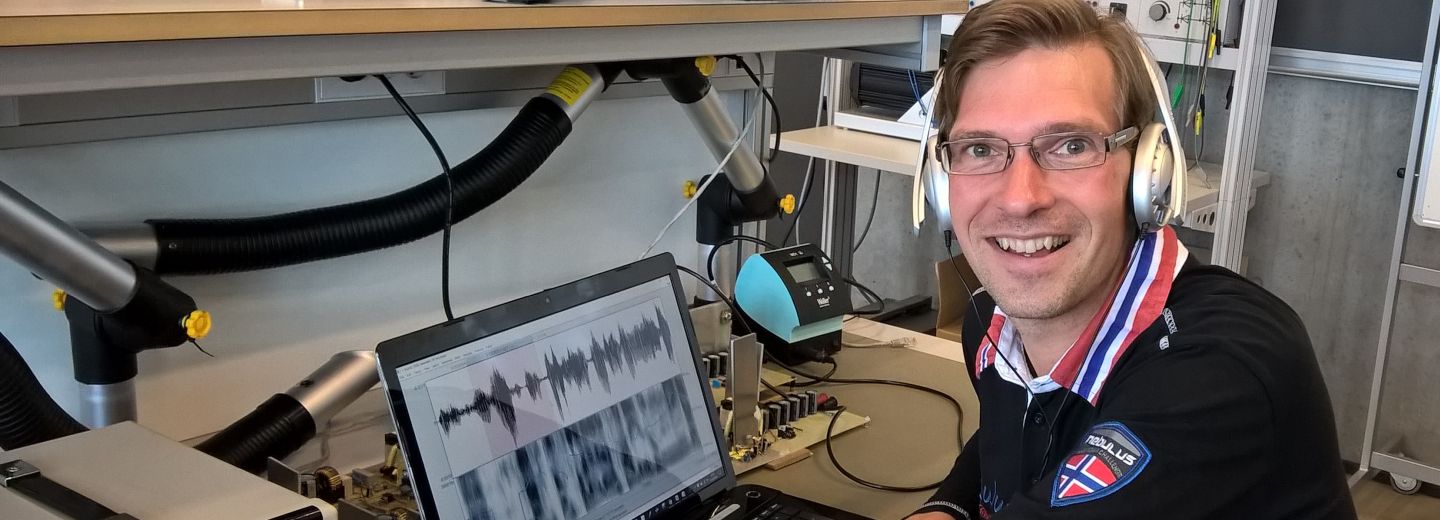
Meet Oliver Niebuhr: Exploring the Joy of Discovery and the Intricacies of Perception
Oliver Niebuhr, an Associate Professor at the Centre for Industrial Electronics, is a researcher driven by a passion for understanding the world and the thrill of uncovering new knowledge. In an enlightening interview, Niebuhr shares his motivations for becoming a researcher, alternative career aspirations, and the fascinating research area of psychoacoustics.
In this interview, Associate Professor Oliver Niebuhr delves into the captivating question of how the brain constructs our perception of reality and highlights the breakthroughs in his field.
Furthermore, Niebuhr discusses the practical applications of his research, the influence of community-driven software, and his fascination with physics. Discover more about this multidimensional researcher and his interests beyond academia, including his love for movies, books, and family adventures.
Why did you become a researcher?
Many would say now, 'because I want to understand the world around us'; that was also an important motive for me. First and foremost, however, it is the joy of discovery. Seeing and describing new things and showing them to people inside and outside academia is excellent.
Which other career did you consider?
Oh, there were so many things! I have always enjoyed working creatively. Seeing things from different perspectives, thinking in new ways or testing existing concepts in new areas is something I still benefit from as a scientist today. Back then, I mostly spent this energy creating movies and books. I would have become a movie director or a science fiction author.
What occupies you at the moment?
I have the privilege of working in a very application-oriented research area: psychoacoustics or psychophonetics. The spectrum of our research extends from the effects of written and spoken hate speech to listener-centred industrial sound design focusing on noise and stress reduction to the measuring and training of charismatic public speaking, also in human-machine interactions. The application-oriented questions often find their way into practical implementation and help to improve people's everyday lives. This is tremendously fulfilling, and - I emphasize this too - the support from SDU TEK and RIO in these activities is outstanding.
Which question would you like to find an answer to?
The big question in fields whose names begin with "psycho" is how the brain manages to construct a coherent perception from all the multimodal signals it receives at every fraction of a second. It's genuinely a fantastic engineering process. Sounds, voices, three-dimensional vision, tastes, and even chronology are continuously updated interpretations, enriched by experiences, constructed on expectations and filtered by partly learned, just noticeable differences. How physical signals relate to what we so effortlessly and unconsciously perceive as our tangible reality is the biggest question to which only partial answers exist.
What is the most significant breakthrough in your field ever?
That is hard to say. Some breakthroughs are "loud" and disruptive, others more subtle and gradual. The development of spectral analysis and the source-filter theorem are among the critical breakthroughs in my field. Much quieter, but perhaps even more influential, however, were community-driven software applications, which have democratized the research in my area and contributed a lot to the rich and diverse knowledge we have today.
How do you hope that others can benefit from your research?
I hope that I can see these benefits regularly. For example, founded based on our research, the SDU spin-out company AllGoodSpeakers ApS offers the latest scientific tools and techniques for impactful presentions and negotiations to all interested parties, from salespeople to founders to managers and CEOs. With the Hate Speech project funded by the VELUX Foundation, we formulate guidelines for political and social decision-makers. In a project funded by the Danish Sound Cluster, we contribute to innovations in reducing everyday stress.
Which other research field fascinates you the most?
Physics, especially astrophysics and particle physics, befits a good almost-science-fiction author. The complexity and constructive nature of the hidden processes remind me of the wonders of human perception.
What do you have in your office that most other people don't?
Books - but that would only expose me as an old-school researcher. It's the great variety of chocolate I always have within reach and without which hardly anything works in writing, analyzing and thinking.
Who do you admire the most?
I can't say that spontaneously. There is not one single person. Research is a very competitive business and demands a lot from you, especially if you are passionate about our work. I admire all those who nevertheless manage to balance work and life. I only sometimes succeed in that, and it is one of the most challenging learning processes.
What do you do when you need to research?
This can be deduced quite well from all my previous answers. Movies and books fill up my spare time, but my family includes Anton, the dog. Long walks and trips with the family are always a highlight of the year.